
Rally - Quick Guide
Rally - Overview
Rally is a form of auto racing that takes place on public or private roads with improved production or specially built road-legal cars. This motorsport is renowned by running not on a circuit, but as a substitute. It is a point-to-point arrangement in which contestants and their co-drivers drive between set control points (special stages), leaving at systematic interludes from one or more start points. Rallies may be won by pure speed within the stages or alternatively by driving for a pre-arranged supreme journey time within the stages.
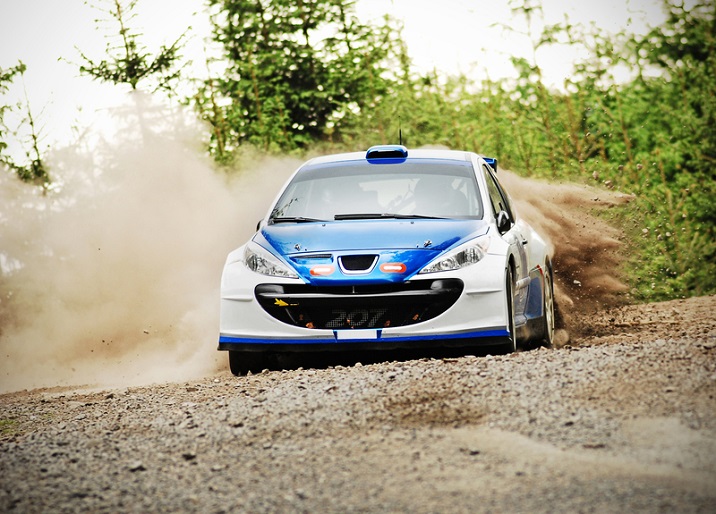
There are no ovals, speed cars or shower interruptions. Rally competing structures real cars racing contrary to the timepiece on closed-off segments of actual infrastructures that are usually not cemented and difficult to tolerate. Events can last several days and cover hundreds of miles through rain, snow, day or night. This life-threatening test of skill, speed and strength collectively makes rally racing the worlds premiere and most exciting motorsport that is rapidly escalating in North America.
Team Size
In rally, the team size is two, one driver and one co-driver.
Driver − Insiders and even casual fans consider rally motorists to be the best allaround drivers on the sphere. They can dominate every road surface and every weather condition while owning the fortitude and determinations needed to make it through long hours and hundreds of miles.
Co-drivers − The key to rally drivers accomplishment are their co-drivers. Rally drivers cannot practice the course and must rely on their direction finder to survive. The co-driver uses an onscreen odometer along with a complete direction book to interconnect to the motorist what mendacities fast on the highway.
The route book describes in detail the road ahead and comprises warnings for threats such as overhangs, trees and intersections. Rally drivers govern what speed and angle to enter each turn or summit in the road by listening to their co-drivers continual directions.
A Brief History of Rally
Rally is a branch of Motorsports and it can be tracked back to 1894, when a Paris newspaper hosted a Paris Rouen Horseless Carriage Competition. Till late 1920s, some other sports used this name. In the year 1930, European rally was organised which attracted more than 300 participants.
Post World War II, Rallying became extremely popular. Competitions and championships were organized throughout the year as World Rally Championship.
The period after 1950 was considered to be the golden period for Rally. Apart from Monte Carlo rally in Europe, there were other Rally championships which drew huge crowds. Some of the major championships are −
- The Lisbon Rally
- The Tulip Rally
- The rally to the mid-night
Participating Countries
The rally sport has not only gathered its popularity in India but also outside. Countries like Japan, Korea, Sri Lanka and Malaysia have their own sports clubs relating to rally. Completions like FIA Asia Pacific Rally Championships are attracting more numbers of participants each year.
The point of origin of this sport was in Europe. So its an obvious thing that apart from Europe, the sport has also its fan following in its nearby countries like England, France, Germany, Finland etc. Post war, many countries forwarded their helping hand to make this sport popular.
Playing Environment
Rally does not require closed gallery, smooth roads and lots of crew care takers for the cars. It is completely rough sport. With only a co-driver, you will drive along the rough roads for long distance. A race can last up to many days as the moving arena is not small. In addition to that, there is no specific weather condition requirement by this sport.
To make the sport a lot more adventurous, difficult sites are chosen to make it challenging for the drivers to drive. Bumpy roads and roads full of gravels are most common. Crests and valley are also a part of this adventure. A driver has to focus on the driving always. So a co-driver is necessary to guide him throughout the way.
How to Play Rally?
Driving a rally car is, of course, a lot like driving a normal car: steering wheel for left and right, throttle for increasing the speed and brakes for decreasing, clutch for shifting and all that. In this chapter we are going to deal with driving the raft.
Sliding Friction
The mechanism that makes this sport different from other is its playing environment. It uses the sliding friction technology rather than gripping friction. It is not that easy to drive on the messy and gravel filled road compared to plain clean road. For instance, if you will apply brakes over the gravel road, all the weight of the car will get transferred to the front wheels and it may end up bolting all the four wheels.
Turning
On the highway or the racetrack, you indicate where you want to summit the corner and you navigate effortlessly from side-to-side at that point. In rally, we need the car to monitor basically that same path, but we want to do it while sliding with the wheels piercing more or less conventional ahead compared to the car.
We want to slide during a turning for several reasons: first, as in decelerating, the static friction circle is actually very low and we want to use the sidewalls of the exhausts to take some of the adjacent forces of the turning.
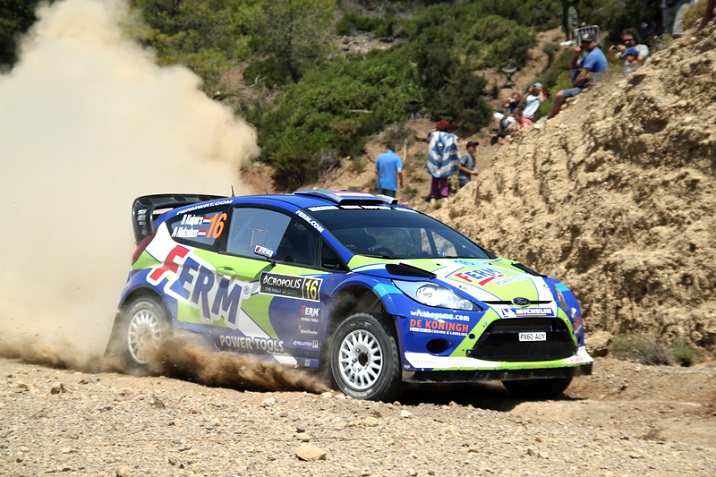
Weight Balance
The real secret of playing rally effortlessly is the art of balancing the weight of the car in between the front and back wheels. Applied inputs are much less on a steering input at this time. But on the way of transferring weight of car from one end to another, you may get your car roll over to the other direction that it is not supposed to direct. This can be only achieved through throttle and brake that increases the traction on wheels thereby increasing the weight.
The Pendulum
Some corners are difficult to spin by normal techniques unless you apply some different techniques. Taking a normal drift will not help you in this situation. Therefore using a hand brake is not advisable at this moment. Rather a driver may go for Pendulum or Scandinavian Flick.
Rear Wheel Drive
The techniques that we have discussed till now are applicable if you are driving in a front wheel or all-wheel. Balance techniques also applies for the same. Many riders neglect this fact that while driving in rear wheel, using throttle steering can cause sharp turns.
Hand-brakes
The hand brake on the rear side of the steering is known as destabilizer. But it is not recommended to use this so often because it slides the car without helping it in shifting the weights and the results are unpredictable in the high speed points. Use the hand brake only when you want to go off the road and there are tight corners where you cannot use pendulum technique.
Left Foot Braking
Many reasons can be stated in support of this but the biggest reason is the time that you save while playing this kind of sport. While changing from throttle to brake, you save a fraction of second that is also very significant. This is also very important from weight balance point of view.
Front Wheel Drive
Left-foot braking and hand-brakes are there to understand an interesting aspect of FWD rally cars and why they can be very fast. With FWD, left-foot braking can work like a hand-brake, without the disadvantage of not shifting weight forward.
Jumps
The problem is that every driver wants to drive his car nose down. While taking off, a slightest approach of slowing it down or braking may land your car on nose. If you want to accelerate at the launch time, then attempt the power assisted brake and bring it back on to the regulator mode just before the launch.
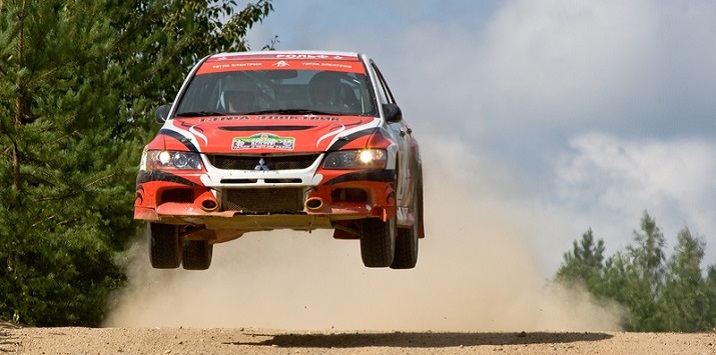
All drivers want to land their cars four wheels in slightly different fraction of time while landing. If you want to regain this time of momentum with your car, then try to compress them all at once so that in addition to achieving the above momentum, you will also get the second bonus jump while your back wheels leave the ground.
Bumps and Dips
The principle of Mogul skier states that you can easily transfer the weight of your car on crest or bumps while turning over a terrain. It is all about turning your car during the moment it naturally unweighs itself because it requires zero effort.
Water Splashes
Keep your car in accelerated mode in order to keep your cars nose up while jumping but this will demand enough momentum to move your car to the other side. Yet, do not move your car very fast because you will end up filling water into air intakes or coils. Make them little bit waterproof and enter into the splash medium speedily with nose up.
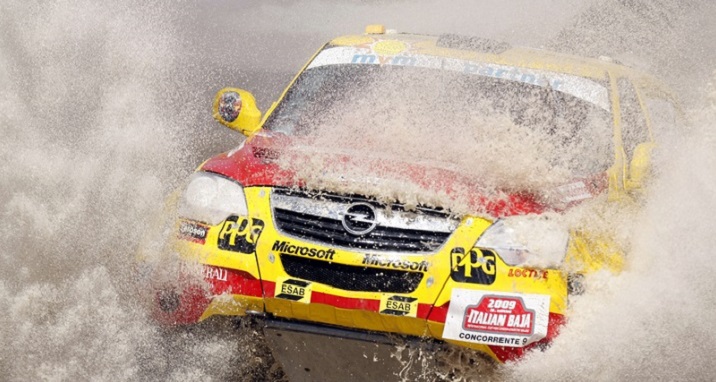
Rally - Championships
Championship for Drivers and Co-Drivers
For classification purpose total numbers of rallies are taken into considerations. At the end of the sessions, the drivers and co drivers having highest number of points are declared as Worlds Rally Champion Driver or Co-driver.
Championship for Manufacturers
A manufacturer is allowed to take part in the competition. The rules for the manufacturers are same as that for drivers and co-drivers participating in World Rally Championships.
All results will get noticed during the final classification of the sport. Among all the manufacturers, the one having highest number of points at the yearend will be declared as the World rally champion manufacturer.
Participation of Manufacturer
According to regulations, points will be awarded to the manufacturer. Depending upon their positions, only two drivers (Nominated) will score points for the manufacturer.
During the time of the registration, they are bound to give the name of the competitors. Manufacturer of the car must be included in this.
Before the closing dates, they have to mention the name of the score point entering drivers name. For at least 10 championships, one driver must be nominated.
On failing to attend the championships, one must pay the fine and the entry fee to each organizer.
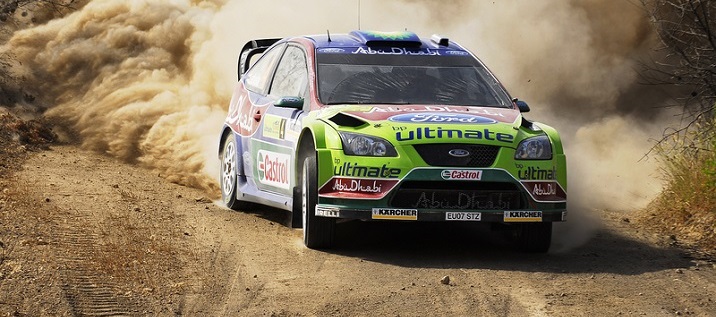
Participation of WRC Team
Must participate in seven nominated rallies
Just before closing of the fifth rally, a team who wants to score points can register. The registration form will be available at FIA all the time.
Those who wish to score points can do so provided those rallies should be nominated at the time of registration.
Must pay the exact fees for number of cars to collect the manufacturers points and that fee is in no way connected with the number of rallies one participated.
Must provide the name of the manufacturers and it should be same for both the cars entering into the tournaments.
Support Championship
Just before the closing date of entries of first rally, teams and competitors must register with FIA to be eligible to score points. The registration for each championship is fixed and is made in the name of driver or team name. Those who are participating in WRC 2 and/or WRC 3 are not allowed with more than two cars. The car that is best placed is taken into the consideration.
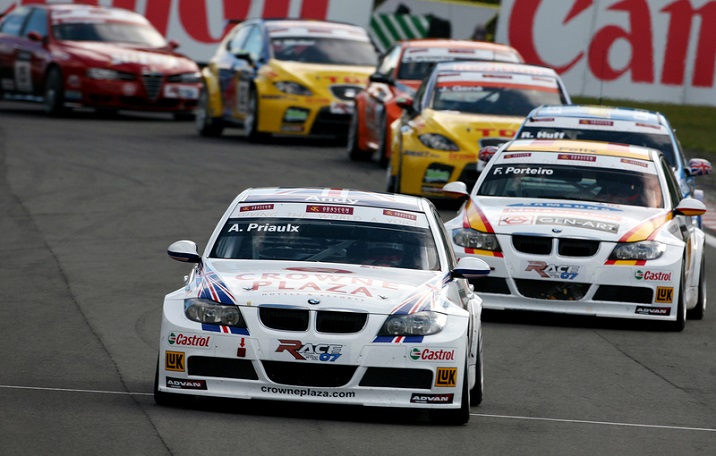
Those who are participating in WRC 2 and/or WRC 3 and want to score points must entry in individual rallies using the Support Championship standard entry form. This form must be sent to the organizer and FIA.
Rally Scoring
From the general list of classification eligible (for scoring points), the name of team drivers and co-drivers will be chosen for awarding points. Points that are earned in Support Championships are always named on behalf of team, driver or co-driver.
Titles of WRC 2 championships are awarded to respective team, drivers and co-drivers who have scored highest points in six out of seven rallies.
Drivers of Group N cars who are eligible in class RC2 entered in WRC 2 get their list drawn from general classification. As per the similar scale of championship, points will be awarded for FIA production car. In the result, the highest point gainer driver and codriver will be the winners.
Rally - Champions
International Automobile Federation is the governing body for organising Rally championships all over the world. However, every country has its own governing body to govern the rules of the sport. The list of some important championships of rally are as follows −
- World Rally Championship
- British Rally Championships
- Australian Rally Championships
- European rally championships
- Asia Pacific Rally Championships
- Canadian Rally Championships
Let us now discuss briefly about some of the champions of this sport and their careers.
Juha Kankkunen
Juha Kankkunen is from Finland and was born on 2nd April 1959. He has participated in total of 162 rallies out of which he has won 23 rallies and 75 podiums. In addition to that, he has made 700 stage wins and gathered 1140 points.
His first rally win was in the year 1985 in Safari rally. Besides these, he has won Drivers World Championships. In 1986, he partnered with Peugeot and became the worlds youngest champion.
Miki Biasion
Miki Biasion is an Italian and was born on 7th January 1958. He has participated in total of 78 rallies out of which he has won 17 rallies and 40 podiums. In addition to that, he has made 373 stage wins and gathered 768 points. His first rally win was in the year 1986 in Argentina rally.
In 1983, he has won Italian and European Rally Championships. In mid-9180s, he was a part of Lancia World Rally Championship team because of his performances in previous championships.
Carlos Sainz
Carlos Sainz is a rally car racer from Spain and was born on 12th April 1961. He has participated in 196 rallies out of which he has won 26 rallies and 97 podiums. In addition to that, he has made 757 stage wins and gathered 1242 points.
His first rally win was in the year 1990 in Acropolis rally. In 1990 and 1992, he has won World Rally Championship drivers title. In 1990, 1997, and 2010, he won Asia-Pacific Rally, Race of Champions, and Dakar Rally competitions respectively.
Louise Aitken-Walker
Louise Aitken-walker was born in Duns in the year 1960. She made her debut into this sport in the year 1979. In the year 1981, she finished her first Rally GB race at 19th position.
In the year 1990, she became ladies World Champion and in the same year, she won Segrave trophy due to her successful 14-year career. In the year 2002, she had been inducted into Scottish Sports Hall of Fame.
Burcu Cetinkaya
Burcu Cetinkaya is a rally racer from Turkey and was born on 19th March 1981. She made her debut into this sport in the year 2006 and is continuing till now.
Her first rally win was Turkish rally in the year 2006. She had also won Istanbul Ladies Rally Championship.
Apart from these, she is a good player in snowboarding. Burcu has earned gold medal in 2003 Turkish Women Snowboarding Championship.